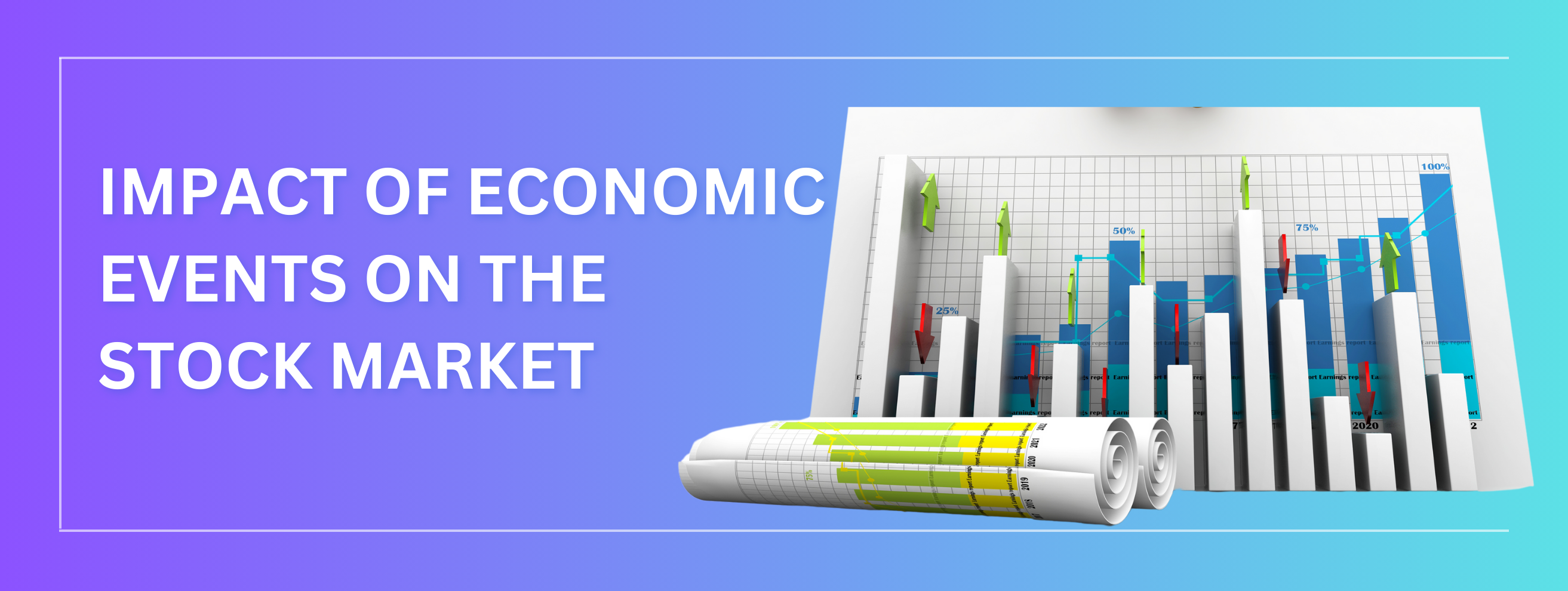Avail Best Stock Market Courses in Delhi from Ruchir Gupta Training Academy
Before delving into what the stock market courses have to offer, we will delve a bit into the d
Read More
The Indian economy is like a grand stage where all types of businesses play out their roles, and the Stock Market is just the opposite: a huge audience watching each performance and reacting to it. The success of businesses on stage in economic growth directly influences the mood of the audience (stock market performance) and vice versa. The blog discusses the very interesting relationship of the Indian economy to its stock market so that you can get a designed comprehension of important dynamics.
Significantly, in the stock market, there is a positive relationship with several economic events as these events will significantly influence the psychological factors of investors, corporate profitability, and overall conditions of the economy wherein some examples of such major economic events will include:
As imagined, the stock market will ultimately be as colossal as it can be because it mirrors the health states of entire economies in India; and listed companies would include all those supplies-calibrated like manufacturing-to-IT-to-other-services, all sharing the same fate in relation to considering their performances in terms of price reflected in their shares.
So, as a dynamic company, profit-sustaining, high prospective share price indirectly indicates some correlation with its performance, by corollary, a struggling company will directly affect share price decline. Overall, then, the same pattern for stock market performance applies.
Justification on the subject is encapsulated in the following points -
As to the relationship between the economy and company profits, in general, an econometrician's growing and stable economy enhances government interests, leading to increased business profits and, subsequently, elevating investors' confidence in the stock market, which in turn raises the stock price index in the stock market. Think of an industry like, say, manufacturing, by increasing profits of companies like Tata Steel, or any automobile, which would be reflected in rising share price.
The Reserve Bank's monetary policy with respect to interest rates, setting up interest rates, that they alter for both businesses and individuals. Reduced interest rates may tend to always entice or stimulate more borrowing and investment in turn, which ultimately pushes up the stock market levels. Down interest rates also make borrowing cheaper. This can in turn make it possible for companies to entertain expansion plans that eventually could lead to higher gains in the future and thus become carefully reflected in their share prices automatically.
High inflation can lead to a depreciation in purchasing power through monetary effects, being certainly an important negative factor for profits corporately speaking. That is one of the reasons investors become bearish, thereby resulting in a decline in stock prices. For instance, higher prices of oils could affect Maruti Suzuki and create an event, in which shares are conjecturally possible to decline.
Another way to affect a sector would be that of the government policies that may directly or indirectly have a great impact on the stock market as well as the diversified sectors. For example, certain infrastructure developments will likely trigger lots of business transactions, especially among companies like Larsen & Toubro, which in turn increases their share price.
Positive GDP Growth is a valid argument in favor of strong economic growth increasing the confidence of most investors and future expected corporate earnings, thus raising stock prices. On the other hand, the GDP practically becomes negative when GDP contracts, which is generally considered a sign or indication of an economic slowdown recession that often brings declining corporate profits and resulting lower stock prices.
High employment typically creates higher spending with consumer spending being boosted to increase corporate profits and stock prices.
High unemployment usually leads to reduced consumer spending, which curtails business operations. This has the effect of pulling down the economy or causing a recession; hence it is known to be rising unemployment.
The tide voting stock price. Strong earnings tend to drive stock prices higher because it speak of healthy performance by the corporation.
If the company states underestimates the profit, the usual tendency is a decrease in stock quotes because investors will re-examine the future profitability of the company.
Tariffs and trade barriers of the trade wars are mostly bad for companies that trade internationally, which then often ends with the stock market being equal down.
Political Instabilities: Elections, political uncertainty, and conflicts tend to increase market volatility, with a downward drag on stock prices.
Such events include the COVID-19 pandemic or calamities caused by natural disasters such as tsunamis, which can disturb supply chains while diminishing consumer demand and increasing market volatility, resulting in a sudden fall in stock values.
Global economic downturn refers to the occurrence of economic problems in big economies or in financial markets controlling the world, causing the entire stock market to plunge, such as the financial crisis occurring in 2008.
The event of global economic integration, which affects large economies (e.g. China or the U.S.), will automatically affect world markets because of the very interconnected nature of the world economy.
Investors look into a whole lot of factors before venturing into an investment in shares. Such include the financial health of the company, the future prospects, and the efficacy of the management in running it.
One has to first check the valuation metrics of the company (such as the P/E ratio) to understand whether the share price is reasonable.
Do consider your investment goals and risk-bearing capacity. Investors with long-term horizons need not bother about short-term economic changes.
The manufacturing companies are producing more goods and, therefore, more profits, increasing demand for their shares by investors seeking a pie.
And more share purchasers drive the price of these companies' stocks further up into the overall upward push of the market.
A rising stock market will also attract foreign investment to boost the economy further.
Invest wisely in observing the Bigger Picture because as the Indian economy and the stock market are related, one should not base his investment judgment primarily on economic data.
Indian economy and stock markets are two sides of the same coin. Economies make up an invigorating stock market, while a stock market can assist in the boost of the economy. Therefore, by knowing the interdependence of both, an investor can become an aware investor. Economic events largely drive market trends and impact investor behavior and performance in the stock market.
Before delving into what the stock market courses have to offer, we will delve a bit into the d
Read MoreWe have become the best institute for Online Stock Market Training in Delhi and this has cement
Read MoreRuchir Gupta Training Academy has emerged as the best Stock Market Training Institute in Delhi.
Read MoreA share market is a place where stocks are either issued or traded. A share market is similar t
Read MoreStock trading and understanding the stock market is accessible to anyone. There are many ways y
Read MoreHumanity was revolutionized by books. Individuals were able to borrow knowledge from others. An
Read MoreAs a prominent Stock Market Trainer, Ruchir Gupta provides training in various stock market tactics through his specialised courses.
At Ruchir Gupta Training Academy, we can train a beginner into a pro trader in just one month. We use the highly proven GCD (Date, Direction and Target) method, which significantly enhances accuracy in identifying market trends and targets. With our comprehensive training approach, you'll gain the skills and knowledge needed to earn from the stock market successfully.
What sets us apart is our commitment to providing personalized attention and guidance to each student via the support team. We prioritize individual learning needs and tailor our approach accordingly. We provide online trading courses so you can learn at your own pace. Additionally, Sir Ruchir Gupta brings his own extensive experience to the table, ensuring that you receive top-notch mentorship.
Yes, absolutely. We believe in providing support and guidance to each student. Our support team is always there ensuring that you receive the assistance you need to succeed. Whether you're a beginner or an experienced trader, we're here to help you reach your goals.
Students enrolled in our share trading course have access to a wide range of recorded video lessons and scanners designed to enhance their learning experience. Apart from these students are also provided with a mighty community and telegram group where they can interact with their fellow learners of the course and enhance their knowledge.
Yes, we have numerous success stories and testimonials from previous students who have greatly benefited from our courses. Many of our graduates have gone on to become successful traders and investors, thanks to the knowledge and skills they acquired at Ruchir Gupta Training Academy. You can read some of their inspiring stories on our website.
